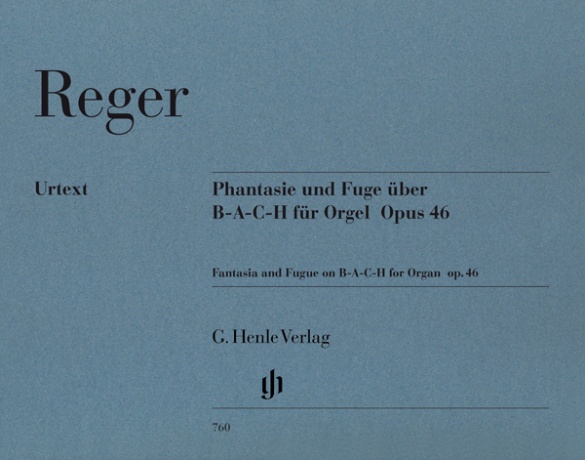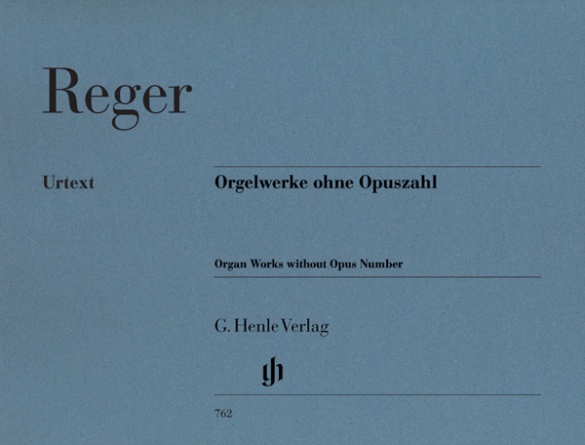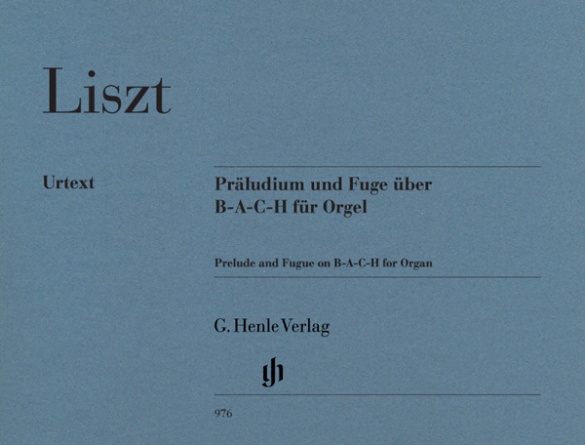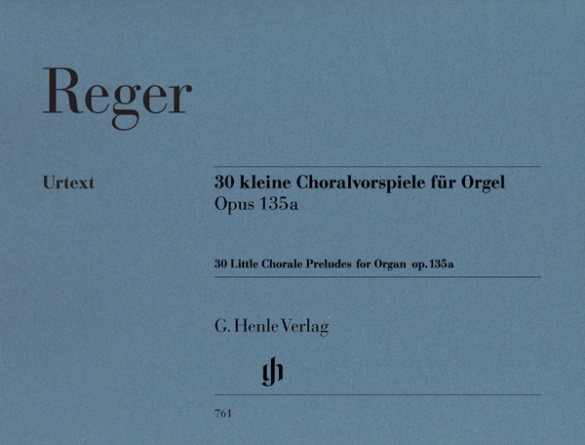

Max Reger
30 Little Chorale Preludes op. 135a for Organ
Max Reger, the creator of forbiddingly difficult organ music, could also take a different tack. His “Thirty Little Chorale Preludes“ are intended for semiprofessional organists always on the lookout for good organ chorales for use in Sunday church services. Reger selected the best-known tunes of his day from the Lutheran hymnal. Most of them are still in use today and form excellent additions to modern services. Michael Kube, in a detailed preface, draws a vivid picture of the composer and his superhuman creative powers.
Content/Details
About the Composer
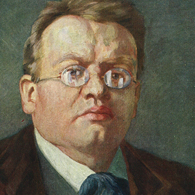
Max Reger
Late-Romantic composer who combines a chromatic tonal language with Baroque and Classical forms, thus anticipating 1920s neoclassicism.
| 1873 | Born in Brand (Upper Palatinate) on March 19, the son of a teacher. First piano lessons from his mother. |
| 1888 | After a visit to Bayreuth (for Meistersinger and Parsifal), decides on a career in music. |
| 1890–93 | Studies with Hugo Riemann at the conservatory in Wiesbaden, composes chamber works. Thereafter he endeavors to publish his own works as a freelance composer, albeit with multiple failures. |
| 1898 | Return to his parents’ home in Weiden. Composition of organ works: choral fantasies, “Fantasy and Fugue on B-A-C-H,” Op. 46 (1900); Symphonic Fantasy and Fugue (“Inferno”), Op. 57. |
| 1901–07 | Living in Munich. |
| 1903 | Publication of his “On the Theory of Modulation,” causing Riemann to feel attacked because Reger espouses a different understanding of the role of chromatics. “Variations and Fugue on an Original Theme,” Op. 73. |
| 1904 | Breakthrough with his first performance for the Allgemeine Deutsche Musikverein (General German Music Association). First volume of his “Simple Songs” for voice and piano, Op. 76; String Quartet in D minor, Op. 74, one of the most significant works in that genre at the beginning of the century. |
| From 1905 | Instructor at Munich’s Academy of Music. “Sinfonietta” in A major, Op. 90. |
| 1907–11 | Music director and professor of composition at the University of Leipzig. Orchestral work “Variations and Fugue on a Theme by Hiller,” Op. 100. |
| 1909 | “The 100th Psalm,” Op. 106, his most popular choral work. |
| 1911–14 | Director of the royal court orchestra of Saxe-Meiningen. |
| 1912 | “Concerto in the Old Style,” Op. 123. Orchestral song “An die Hoffnung” (“To Hope”), Op. 124. |
| 1913 | “Four Tone Poems after A. Böcklin” for large orchestra, Op. 128; “A Ballet Suite,” Op. 130. |
| 1914 | “Variations and Fugue on a Theme by Mozart,” Op. 132 |
| 1915 | He resides in Jena. Late compositions. |
| 1916 | Death in Leipzig on May 11. |
About the Authors

Michael Kube (Editor)
Dr. Michael Kube, born in 1968 in Kiel, studied musicology (with Friedhelm Krummacher and Heinrich W. Schwab), the history of art and ethnology at the Christian-Albrechts-Universität zu Kiel. Since 1998 he has been a research associate at the New Schubert Edition (Tübingen) and since autumn 2002 also a member of the editorial board.
Kube is on the panels of different juries and music prizes, and is also a member of the Committee for work evaluation (Werkprüfungsausschuss) of VG Music Edition. His research interests include music for keyboard instruments around 1700, 19th century chamber music, early 20th century music history, as well as Scandinavian music history.
Product Safety Informations (GPSR)

G. Henle Verlag
Here you can find the information about the manufacturer of the product.G. Henle Verlag e.K.
Forstenrieder Allee 122
81476 München
Germany
info@henle.de
www.henle.com
Klare Empfehlung.
Kirchenmusik im Bistum Trier, 2014Avec cette nouvelle édition,
les organistesbénéficient de la gravure la plus élégante, et de quelques suggestions judicieuses de l’éditeur, en particulier dans le domaine des liaisons et des nuances.
Magazine Orgue 85, 2005From Henle comes a fine new edition of Reger's short and useful chorale preludes op. 135a of 1914.
Music Teacher, 2004La presente edizione si distingue per chiarezza e precisione, per la dettagliata prefazione in cui il revisore ci mostra un ritratto a tutto tondo del compositore.Al di là dell'uso liturgico ed eventualmente concertistico questa raccolta si raccomanada soprattutto per la sua valenza didattica, come avviamento e scoperta del mondo sonoro regeriano.
Arte organaria, 2004recommendations
autogenerated_cross_selling
Further editions of this title
Further editions of this title


